So… I’ve never played a Dragon Quest game before this one. It’s a bit odd to think that, given how important for the development of Japanese-made RPGs the game was. Even if it itself originally drew inspiration from Wizardry and Ultima. But yeah, I’ve played almost every Final Fantasy game, but never Dragon Quest. So I’m glad that DQ XI became my introduction to the series as I do see why it’s often called one of the greatest examples of the genre.
Being not personally familiar with older entries, I can only speak from what I’ve seen and heard from others in terms of how similar or different the DQ XI is in comparison. But as I understand, most of the titles in the franchise (just as it is the case with Final Fantasy) are completely disconnected, only sharing some similar characters, themes, monster designs and basic concepts. But gameplay-wise, they all feature the more or less unchanged oldschool approach to turn-based combat, combat encounters that have it’s own arena space, rather simple, but epic adventure story, great music, exploration in both locations and in the overworld and incredibly memorable and fun monster designs. In DQ XI in particular, you can see encounters on the map (at least in 3D mode, I’ll explain later) and you can attack first to deal damage before the encounter starts, but once it starts there are no special checks for if you were the one to initiate the fight – you may still be “ambushed” and lose the first turn. Additionally, this game in 3D mode has overworld only for travel via other means than on foot or via a horse, with big handmade locations covering the space between the towns and dungeons. And you get additional traversal mechanics like jumping, climbing and stuff like this. It’s like getting just the perfect amount of open world, without the tedium that usually follows.
My mind was also absolutely blown by how brief and fun the battles can be. Almost every single example of a jRPG in 3D that I’ve experienced up until now felt like going into the battle and out of it takes a painfully large amount of time. But in DQ XI it’s just right. And since you can set your partners to behave automatically, based on a rule, it also means that you only need to take control during harder fights and boss encounters. It’s not as deep as the fantastic Gambit system from FF XII, but it doesn’t need to be. Mechanically, it is a rather classic turn-based affair, but there are some tweaks and a super powered mode reminiscent of Limit Breaks from FF, without it being super important most of the time. Oh and I’m so glad that in this game enemies much weaker than you just straight up run away, which is usually a good indicator of you becoming over-leveled for a particular part of the game.
The story is rather simple in terms of the plot, but the characters and storytelling are good. Same for the English voice acting and especially the fantastic localization that has an incredible amount of personality to it. There are plenty of very unexpected surprises in the story, with most of them being genuinely well written and well delivered. And in general, even if the game does overstay its welcome a bit by the end, it feels like a super fun adventure with ancient mysteries, saving the world and all the good stuff.
But I’ve played the game in the 3D mode and that requires some explanation. So, the original release of the game from 2017 had two versions of the game – the one the 3D mode is based on for PS4 and a different one for Nintendo 3DS. The 3DS version used its 2 screens to deliver a game in 2 different styles – a 3D model style reminiscent of the (terrible, in my opinion) DS remakes of older Final Fantasy games, and a 16-bit like 2D style. While the story and most of the content of the 3DS version was same or similar to the PS4 version, the location layouts and some mechanics were different. For example, this version had classic overworld exploration between towns and dungeons, instead of specific locations and in that overworld all encounters were random. The fights also followed an even stricter oldschool turn-based rules. Including the old conventions of those rules, where you’d get one combat update line at a time. So if you kill 6 enemies with one hit, you’d get “enemy 1 damaged for X damage, enemy 1 died, enemy 2 damaged for X damage, enemy 2 died…etc”, with one update per line. This makes the 3DS combat feel far slower than the PS4 combat.
The Definitive Edition of DQ XI has “2D mode” that is emulating the 16-bit screen version of the 3DS game. It is a completely separate mode (since maps are incompatibly different) and while you can switch to it from within 3D mode, it’s not seamless, requires a separate save and you can’t go back once you’re in. Being based on the 3DS version, it also lacks a lot of quality of life things like quick menus that are available in the 3D Mode, because, as I understand, they were added with the Definitive addition. It seems like this edition in general made a lot of things much nicer and many things I thought of positively when playing seem to have been either added or improved upon specifically for this version. Though it also removed one mini-game which, as I’ve gathered, had a lot of negative feedback about it. So maybe it’s for the better.
Sadly, you would still need to deal with the quirks and slowness of 2D mode when playing the whole game in 3D mode if you want to 100% the title. There’s a bonus location that used to be in 3DS added to the Definitive Edition, but it’s only available in the 2D mode. Which, presumably for technical reasons, requires you to save the game before you transition there and you can’t save or do some things while you’re in it. That whole area is based around, as I understand, revisiting areas and characters from older DQ entries and, honestly, I liked that whole bonus questline the least. It essentially hits all of the worst things I tend to dislike about jRPGs and even has one level being a hard to decipher vague maze. And yeah, random encounters, of course, which are very slow, as mentioned. But that whole thing doesn’t really add to the main story, so if you find it tedious, you might as well skip it.
That said, even though I was absolutely loving the game for most of my rather long playthrough, the whole last 1/4 of the game (maybe even longer) feel… unnecessary? Because, they are a continuation of the story, but play like optional post dungeons and super bosses you’d normally have in a game like this. So, after dozens of hours of well paced and fun varied dungeons, the game loses any semblance of pacing and requires some grinding even. Due to which, by the end of my playthrough I was glad the game is over. Whereas if it ended around 20 hours earlier, I might’ve even considered a replay at some point.
Nonetheless, Dragon Quest XI in the Definitive Edition is a fantastic game and an experience worth the time. It does many things not just right, but almost perfectly right. It looks good, it feels good. It sounds good, both in a more synthesized soundtrack and the surprisingly amazing orchestral soundtrack that, unlike so many other orchestral soundtracks, doesn’t sound have the “boring cinematic music” feel at all. It keeps all of the quirks of the classic synth-based jRPG music in its sound just like Pixel Remaster soundtracks for FF. It’s great if you’re a fan of jRPGs and if you’re not – this might actually hook you in. I mean – I tend to get bored of turn-based combat games with huge worlds and long runtimes very quickly, and yet I decided to 100% all story content of the game. And loved the vast majority of my playthrough, always anxious to get back to playing after each working day. Guess, now I would have to check older entries in the series, huh…


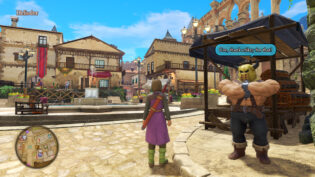
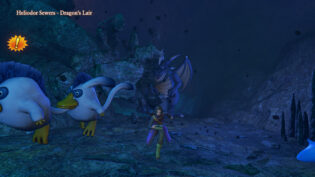
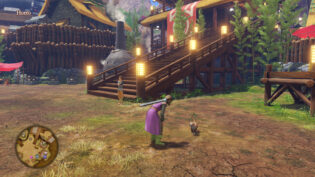
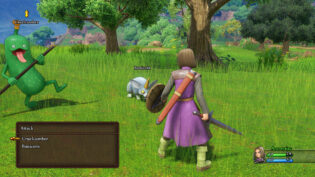
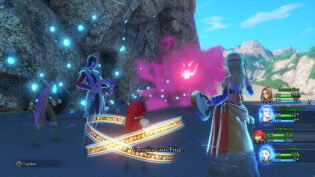

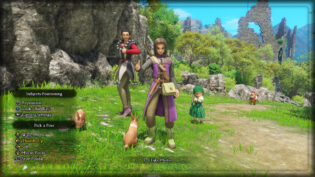
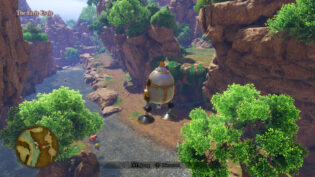
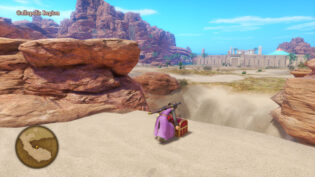
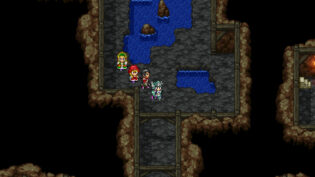
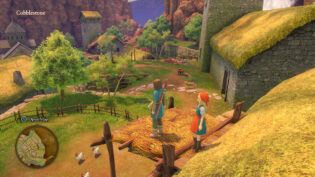
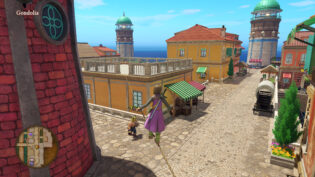

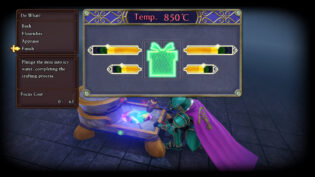
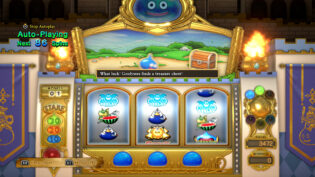
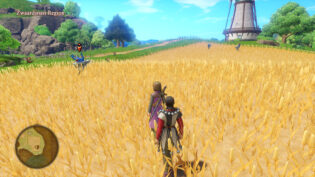
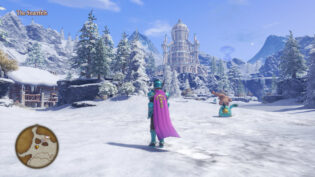
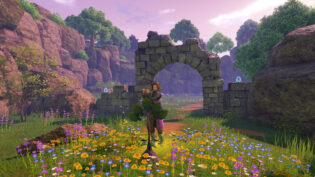
I recently played this game too and had a great time. Feels like a great modern take on classic turn based RPGs, showing that they can very much be a ton of fun still. Also, special shoutout to the gorgeous presentation.